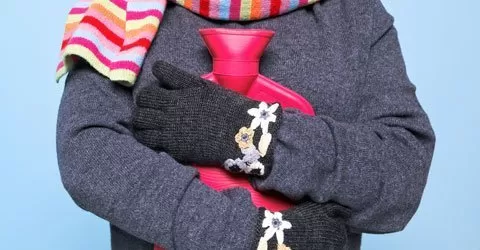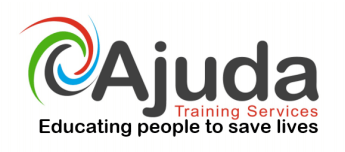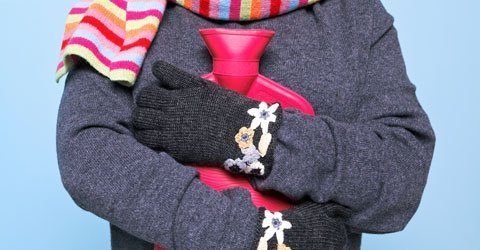According to the Royal Society for the Prevention of Accidents (RoSPA), more than 6,000 people will end up in hospital on Christmas Day and over the Christmas period more than 80,000 people visit A&E and these numbers appear to be rising. Not only is there an increase in admissions due to common winter illnesses, hospitals in the UK see thousands of people treated for Christmas-related injuries. Christmas sees injuries from knives, trips (e.g. from fairy light wires), food poisoning and burns. With serious incidents such as house fires also being more common than during other times in the year; People are 50% more likely to die in a house fire over Christmas than at any other time of year. Approximately 350 people a year are hurt by Christmas tree lights, according to RoSPA. Injuries include people falling while they’re putting them up, children swallowing the bulbs, and people getting electric shocks and burns from faulty lights. RoSPA’s advice is to ‘Test your lights and the wiring before you put them up, as they can deteriorate over the years. If you have old lights, buy new ones that meet higher safety standards, don’t overload sockets, as that’s a fire risk.’ – Since 1996, 31 people have died from watering their Christmas tree with the lights plugged in – 1 in 10 people burn themselves while setting fire to Christmas pudding – 350 people a year are hurt by Christmas tree lights – 1,000 people a year are hurt when decorating their homes – People are 50% more likely to be in a house fire at Christmas than at any other time of the year – Do not leave candles unattended (this advice should be followed throughout the year) – Ensure Christmas cards and wrapping paper are kept clear of open flames (e.g. do not hang cards above the fireplace and do not light candles near cards) – To reduce the risk of trips, slips and falls, keep holiday clutter to a minimum (e.g. invest in a cable tidy to keep stray wires minimal) – Watch out for small items that could cause a choking hazard, particularly in young children (e.g. Christmas cracker prizes) – Open packaging with scissors not knives to avoid careless injuries – If you have old Christmas lights, consider investing in new ones which will meet much higher safety standards – Keep the lights switched off until the Christmas tree is decorated and don’t let children play with the lights (some have swallowed the small bulbs) – Don’t overload sockets – Don’t let bulbs touch anything that can burn easily such as paper (this includes decorations) – Keep glass baubles out of reach of toddlers and pets – Don’t be tempted to leave the lights on when going to bed or when leaving the house – Follow the instructions on the turkey and don’t risk short cuts as it takes hours to cook a turkey thoroughly (uncooked turkey can cause salmonella poisoning, which can be life-threatening for vulnerable people) – Do NOT drink and drive! Take this advice on board to ensure that your Christmas is memorable for the right reasons. Have a lovely, safe Christmas and a very Happy New Year. If you have any other suggestions on ways to stay safe over Christmas, please Tweet us on @ajuda_training. To book yourself onto any of our valuable, life-changing courses (such as, First Aid, Health and Safety or Food Hygiene) in the New Year, please see our Course Calendar and use our new online booking system to book your place. To view our Christmas opening hours, please click on the picture below.

To put these risks into perspective, here are just a few Christmas accident statistics:
– 30 people die from food poisoning each ChristmasHere are some handy hints to keep your house safe:
Tag: christmas
Toasty Tips: How to keep warm through Winter

Cold Weather
With colder weather on the way, it’s really important to remain fit and healthy at this time of year to help your body fight off the common colds and viruses that are circulating. Eating well, wrapping up warm and carefully planning your journeys are simple ways stay safe during winter.
This blog highlights some of the first aid tips you may require over the winter months and potential hazards to look out for.
Keep warm
It is essential to maintain body heat during winter to avoid hypothermia.
Ideally, the temperature indoors should be at least 18 degrees. If you cannot afford to keep the heating on all winter (it can really add up!) then keep adding the layers, have accessible blankets around the house and hot water bottles which are particularly useful and a cost-effective way to keep extra warm indoors.
If you are venturing outside, ensure to wrap up warm and add layers such as, hats, scarves and gloves to prevent you from getting too cold.
Unfortunately, hypothermia is a huge danger at this time of year. The number of hypothermia deaths has doubled over the last five years. It is really important to learn the signs of hypothermia which include pale and cold skin, shallow breathing, a weak pulse and disorientation. If you suspect someone is suffering from hypothermia, then it is vital to encourage the to undertake the following:
– Slowly restore warmth and get indoors if they are not already
– Begin CPR if necessary
– If they are conscious, give them a warm drink such as
– Keep their body temperature up by wrapping them in blankets
Further tips for keeping warm and staying safe:
– Wear several light layers rather than one chunky layer
– Regular hot drinks and meals
– Be very careful around open fire
– Close the curtains after dark to keep away drafts
– Keep your hands clean to reduce germs spreading
– Stay active
– Keep windows closed at night
Keep healthy and fight the cold
As mentioned in the introduction, cold weather can have a detrimental impact on your health. There are many preventative measures that can be taken to ensure that you are fit and healthy throughout the winter months and avoiding sickness:
– Enquire about getting the flu jab
– Take multivitamins
– Maintain a healthy diet
– Have hot meals and drinks where possible
– Invest in a hat, scarf and gloves and a good coat
– Exercise and keeping active helps to maintain body heat amongst many other health benefits
When the temperature drops to below 8 °C some people particularly vulnerable people such as young children, people with existing health conditions, people with a low income and elderly people become at risk of various problems:
– Heart attack
– Stroke
– Pneumonia
– Falls and injuries
– Hypothermia
Travel safely
During the winter, travelling can become particularly hazardous. Take extra care when walking outdoors as footpaths can become slippery. Invest in a sensible pair of shoes with good grip to help to prevent slips and trips.
If you are driving, it is important to be aware that the roads can become slippery and dangerous. It is a good idea to have a winter first aid kit stocked in the car including blankets and water in case you break down. Other driving essentials during this time of year include an ice scraper, winter screen wash, de-icer and a foil blanket.
We hope that this blog has given you some basic ideas about how to stay safe during winter.
As well as ensuring that you take all of these measures to stay healthy, please look out for vulnerable people and do what you can to help them to keep warm. Perhaps consider donating blankets, hot water bottles and tinned food to those in need. Drive calmly and safely to prevent being involved in an accident.
If you are interested in learning more about learning basic first aid skills, please book yourself a place on one of our open first aid courses.


